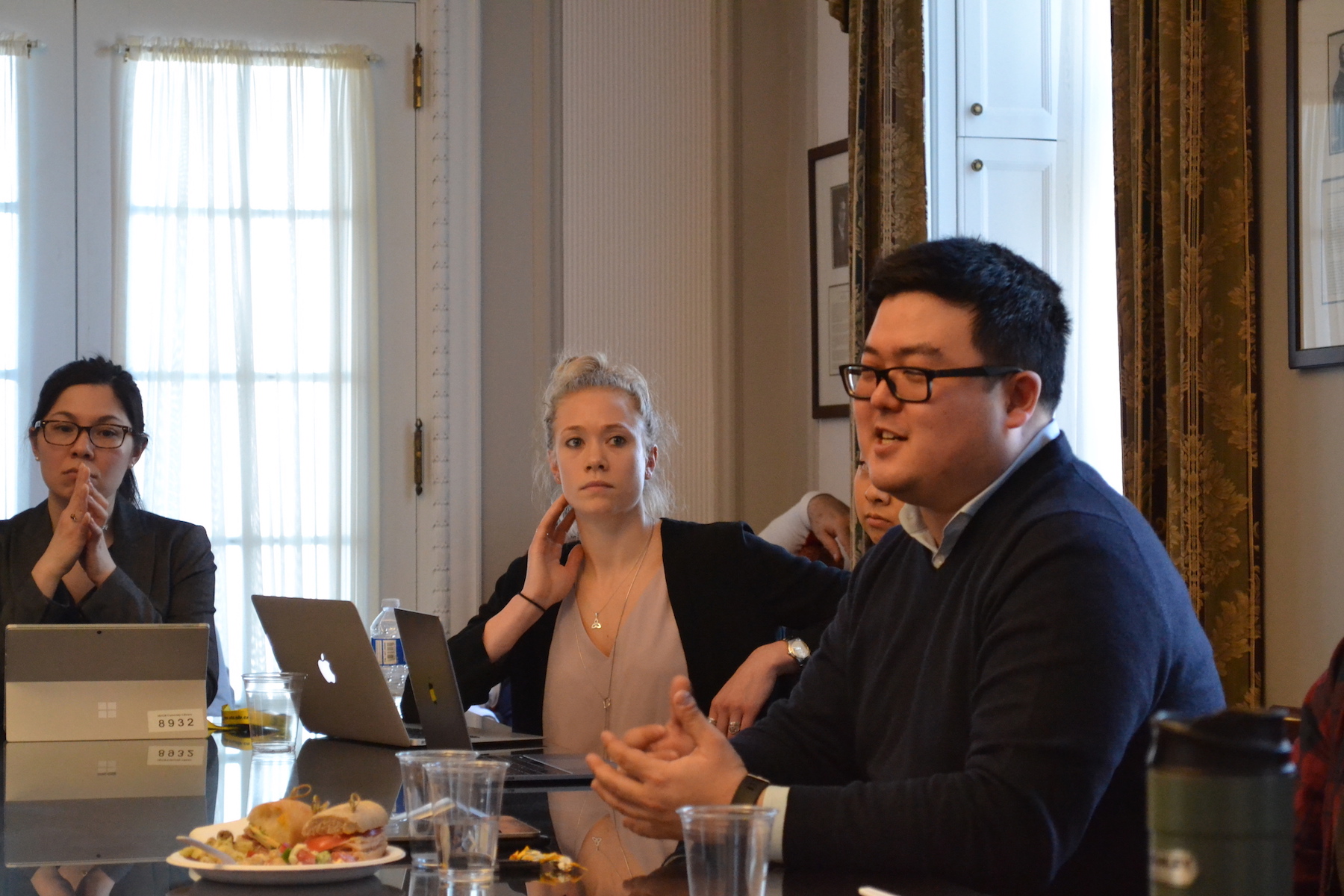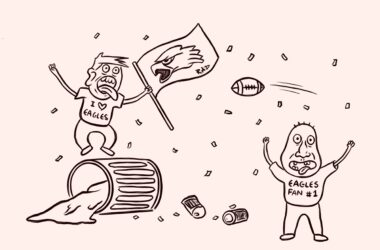With growing amounts of research on the occurrence of concussions in contact sports, conversations about how to keep young athletes safe in organized sporting environments have expanded. At his Feb. 14 talk, “The Games We Play: What Should Law and Policy do About Playing Collision Sports?,” Jason Chung, an attorney and senior research scholar at New York University’s Sports and Society Program, discussed his efforts to find policies balancing the benefits of sports with safety standards backed by scientific research.
“No medical professional will ever say that getting hit in the head repeatedly is a good thing,” Chung said.
However, concussion research has not yet definitively established a cause-and-effect relationship between traumatic brain injuries sustained from collision sports and long-term neurodegenerative effects. Currently, researchers’ focus is on professional sports, such as the NFL and NHL, where there is a greater risk for chronic traumatic encephalopathy (CTE), a condition that results from repeated impacts to the head. Applying these findings to youth sports is not scientifically sound: The pace of play is not nearly as intense, and athletes’ brains are at different stages of development.
“The recurrent research that’s been performed regarding CTE is on elite athletes with far greater exposure [to CTE] than you and I,” Chung said. “When we talk about risk to the general population, we have to be careful not to take extreme cases or edge cases and extrapolate their experiences to the general public.”
However, both Canada and the U.S. have seen a rise in legislative attempts to restrict or ban collision sports at the youth level based on a belief that action is necessary even without conclusive research. Chung argued that there are more productive ways to address the issue like having open discussions about the pros and cons of a total ban, along with conducting longitudinal studies.
“When I’m speaking to American audiences, this is very black or white,” Chung said. “Either you ban it or you don’t. I am actually advocating for more of a Canadian approach. Let’s look at the evidence. Let’s actually perform the steps. Even if we disagree, let’s have a public forum on it.”
In 2013, after a lengthy review with medical professionals, Hockey Canada banned body checking at the peewee level and below. Chung views this example as concurrent with the more nuanced approach for which he advocates. He noted that the quick rush to add regulations founded on imperfect science is unproductive.
“When there’s still debate on the facts and consensus around an issue, changes on that issue will have a basis that’s […] like quicksand,” Chung said. “It’s vulnerable to any shift in […] public opinion.”
Chung cited the social barriers that come with a complete ban, particularly for low-income and racialized communities, as talent in football and other contact sports can provide an opportunity to receive a university education. He also referenced both the physical and emotional benefits of youth sports to those who partake, including preventing obesity and learning teamwork, as reasons to avoid a total ban on participation.
Ultimately, Chung concluded that the most appropriate direction for policy to take is to force youth sports’ governing bodies to take legal responsibility in keeping their rules consistent with the the most recent research. He also argued that federal and provincial governments should require leagues to keep their participants up to date with the available information. Federal and provincial governments across Canada have already begun to establish more comprehensive guidelines for treating traumatic brain injuries and returning to play after concussions.
“This is happening more consistently across Canada, and the federal government is currently spearheading a deeper look into national standards,” Chung said. “Provincial legislatures are adopting laws like Rowan’s Law or at least discussing it in legislature.”








